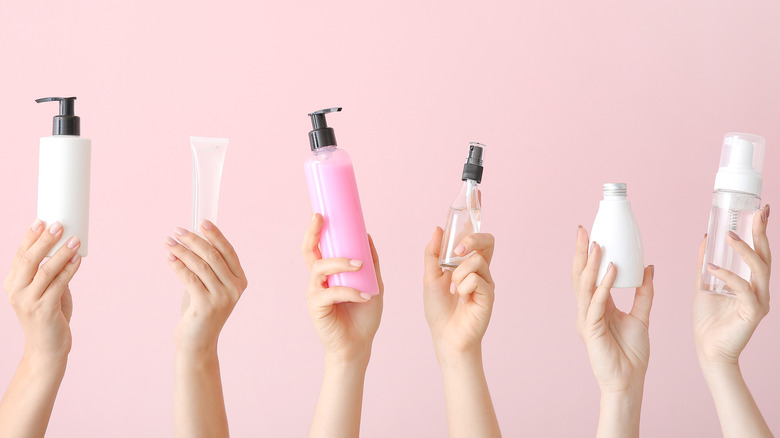The Skincare Ingredients You Really Shouldn't Mix With PHAs
All skin naturally ages, and your genetics play the biggest role in that process. But certain factors like exposure to sunlight, pollution, and chemicals can speed up the process of wrinkling and discoloration (via Dermato Endocrinology). While prevention is the best way to keep skin from aging prematurely, sometimes the damage is already done. If you're looking for ways to help soften the effects of premature aging, there are plenty of products that can help. And if you have sensitive skin, a newer ingredient to hit the skin care market may just be for you.
Polyhydroxy acid, or PHA, is a chemical exfoliant that was discovered in the 1990s, but is just now becoming available for the public to use (via Stylecaster). Beauty brands claim that PHAs can increase skin hydration and help promote skin cell turnover (via Healthline). And they may have the added advantage of being easier on sensitive skin than other ingredients like alpha hydroxy acids and beta hydroxy acids. But pay close attention to what else you're putting on your skin, because not all ingredients play nice with PHAs.
Follow these rules to avoid irritation
PHAs work by penetrating the skin to dissolve the bonds between dead cells and then removing them. This uncovers healthy cells and helps your skin appear brighter and more evenly textured (via Healthline). They have an added bonus of being hydrating. And on top of that, PHA molecules are larger than other hydroxy acids so they don't go as deeply into your skin, which can cause irritation (via Stylecaster).
However, there are a few products you should definitely avoid if you decide that PHAs are the right fit for your skincare routine. Vitamin C, for example, can change pH when mixed with PHAs. This essentially makes both the Vitamin C and the PHAs useless on your skin. Dermatologists recommend applying one in the morning and one at night to avoid this situation. Another popular skin care ingredient, retinol, should not be mixed with PHAs either. Retinol by itself can be irritating, especially to sensitive skin. But combining it with PHAs increases the likelihood of a skin reaction. By trying out a small amount of these ingredients one at a time, you can check to see how your skin reacts to each. That way you'll be able to avoid redness or irritation on your entire face that may result from using new products.

